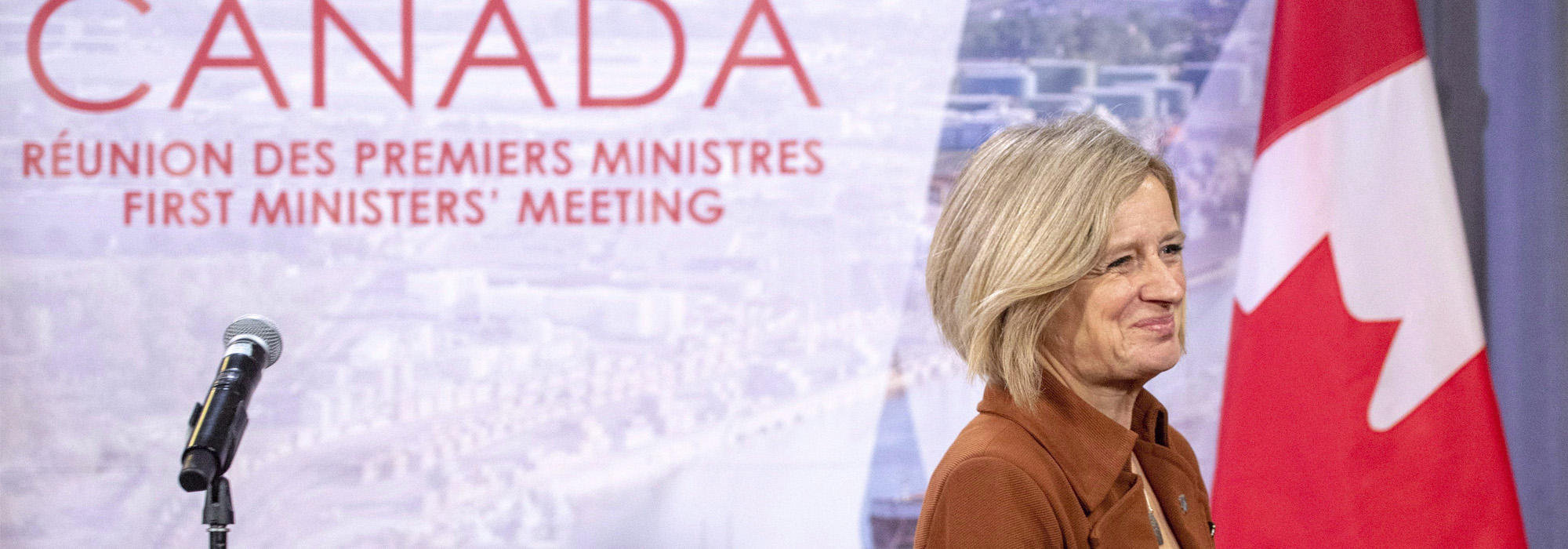
Since the election of Donald Trump and the emergence of the #MeToo movement, the public is increasingly paying attention to the treatment of women in politics. There is growing recognition that women in politics are scrutinized by media and political pundits in terms of how they highlight their masculine traits (such as strength and competence) and whether they are fit for politics based on how “likable” they are as politicians. By contrast, male politicians generally aren’t evaluated in this way.
My recent and ongoing research assesses how politicians present themselves online in social media and suggests that on the campaign trail, male and female party leaders’ tweets are based on traditional gender stereotypes about political issues, regardless of what the salient election campaign issues might be.
I looked at social media presence over the past 10 years in Alberta and BC, and I found that women leaders talk about stereotypically feminine issues during the campaign. Then, as they transition from being candidates to taking power as premiers, the focus changes to more stereotypically masculine issues and behaviours. Previous research has found that voters are more likely to project feminine characteristics (such as compassion) onto women candidates while also expecting masculine traits (such as strength) to align with male candidates.
These “masculine” traits are associated with greater perceived ability on the so-called “male” political issues such as economy and natural resources, whereas feminine traits are associated with greater competency on education and child care, the “female” political issues.
My findings suggest that candidates are aware that gender remains a major factor in campaigns, and it leads women candidates to try to balance their gender presentation in order to get elected before embracing more masculine traits and behaviours once in power.
While the media is responsible for its coverage of candidates, candidates also make choices in the way that they present themselves to the public. These choices have consequences. Women’s presentation styles are particularly constrained, compared with those of their male counterparts, because of traditional gender stereotypes: voters expect women and men to behave a certain way, and they also expect politicians to behave a certain way. This means that on the campaign trail, female candidates try to present a balanced set of traditional masculine and feminine norms to the public.
Once a female politician becomes an elected representative (such as premier), she is more likely to present herself in the context of more masculine traits to the public — with a focus on demonstrating strength, assertiveness and power. At the same time, the politician’s language changes so that her feminine qualities — such as compassion and docility — will dissipate, or she will be chastised when they are evoked.
Voters expect strong leaders, and female politicians sitting in office deliver. But it comes at a price: this increase in “behaving masculine” once women come to power may be highly problematic as it plays into pre-existing stereotypes, making it even more difficult to conceive of political leadership as something other than a “masculine” role.
We are seeing this play out in Alberta, with the upcoming (May 2019) provincial election. Rachel Notley has been premier since 2015, and she has held a strong position on energy, “fighting” for the Trans Mountain Pipeline extension approval. Yet she is criticized frequently in the media for her decidedly “gentler approach on climate change” and pipelines in comparison with her competitor Jason Kenney, who vows to “kill the carbon tax.” As Notley plays into the masculine stereotype, using the strong battle-like language that she is accustomed to using as premier, she is presented as less strong than her opponent, a man who easily demonstrates “masculinity.”
One of the ways that politicians can “behave” masculine or feminine is through the issues they talk about, including on social media platforms such as Twitter. Previous research has categorized political issues like the economy and defence as masculine, while issues like education and health care are seen as feminine. If we take a look at the May 2015 Alberta election, for example, we can see this pattern in action. During the campaign, Rachel Notley’s tweets were focused largely on “feminine” issues, while she also paid some attention to “masculine” issues. In contrast, Brian Jean (leader of the Wildrose Party, which became the official opposition) tended to focus his attention on masculine issues over the course of the campaign. Once elected, both party leaders focused more heavily on masculine issues (Jean stopped tweeting about feminine issues completely, and Notley’s focus on masculine issues tripled from where it was during the campaign).
The behaviour of these two leaders during the 2015 Alberta election aligns with traditional theories of gender and power. Although women’s participation in politics is increasingly “normal,” our overall conception of power continues to be dominated by masculine leadership norms, while stereotypes about how women and men need to behave in society still exist. Women candidates have a delicate balance to maintain: they can’t behave too masculine without seeming unwomanly, while if they are too feminine, they don’t fit the expectations we have of leadership. To get elected, candidates need to play the gender game carefully.
Yet it is important to highlight that we are beginning to see some cracks in these traditional norms and in how women in politics are presenting themselves. In Canada, MP Celina Caesar-Chavannes just launched a new initiative on her Twitter account, “Women Talking Fashion,” complete with the tongue-in-cheek hashtag #WTFPolitics; it is a weekly video series integrating fashion, lifestyle and politics on Parliament Hill. In her first episode the MP shares her latest Sephora beauty find and transitions from a smoky eye tutorial to her plans to debate Bill C-57, amending the Federal Sustainable Development Act. Caesar-Chavannes plays with gender in a public way, perhaps paving the way for changes in the future.
Similarly, in the United States, Alexandria Ocasio-Cortez (the youngest woman elected to Congress) has an online presence that has captured the attention of American and international media. She connects with voters through Twitter and Instagram, discussing her position on the #GreenNewDeal policy proposal as she bakes mac and cheese on Instagram Live, and shares her skin-care tips while simultaneously answering political questions from her followers. Ocasio-Cortez balances political masculine norms such as debating tax policy with simultaneously proving she still fits within the traditional feminine and domestic frame.
These changes in self-presentation aren’t limited to these two politicians, and we can see how these new types of female politicians are beginning to put cracks in the expectations of masculine norms of power that may change or “re-gender” our expectations of politicians. If they succeed in reconceptualizing our concept of power to make room for femininity, this could open up many more paths for women to enter politics. If media coverage recognizes that not all female politicians are the same and begins to reflect that diversity in news stories, women may be permitted more variety in how they present their public image.
This article is part of the Changing the way we talk about women in politics special feature.
Photo: Alberta Premier Rachel Notley leaves after speaking to the media at the First Ministers’ Conference, on December 7, 2018, in Montreal. THE CANADIAN PRESS/Ryan Remiorz
Do you have something to say about the article you just read? Be part of the Policy Options discussion, and send in your own submission. Here is a link on how to do it. | Souhaitez-vous réagir à cet article ? Joignez-vous aux débats d’Options politiques et soumettez-nous votre texte en suivant ces directives.









